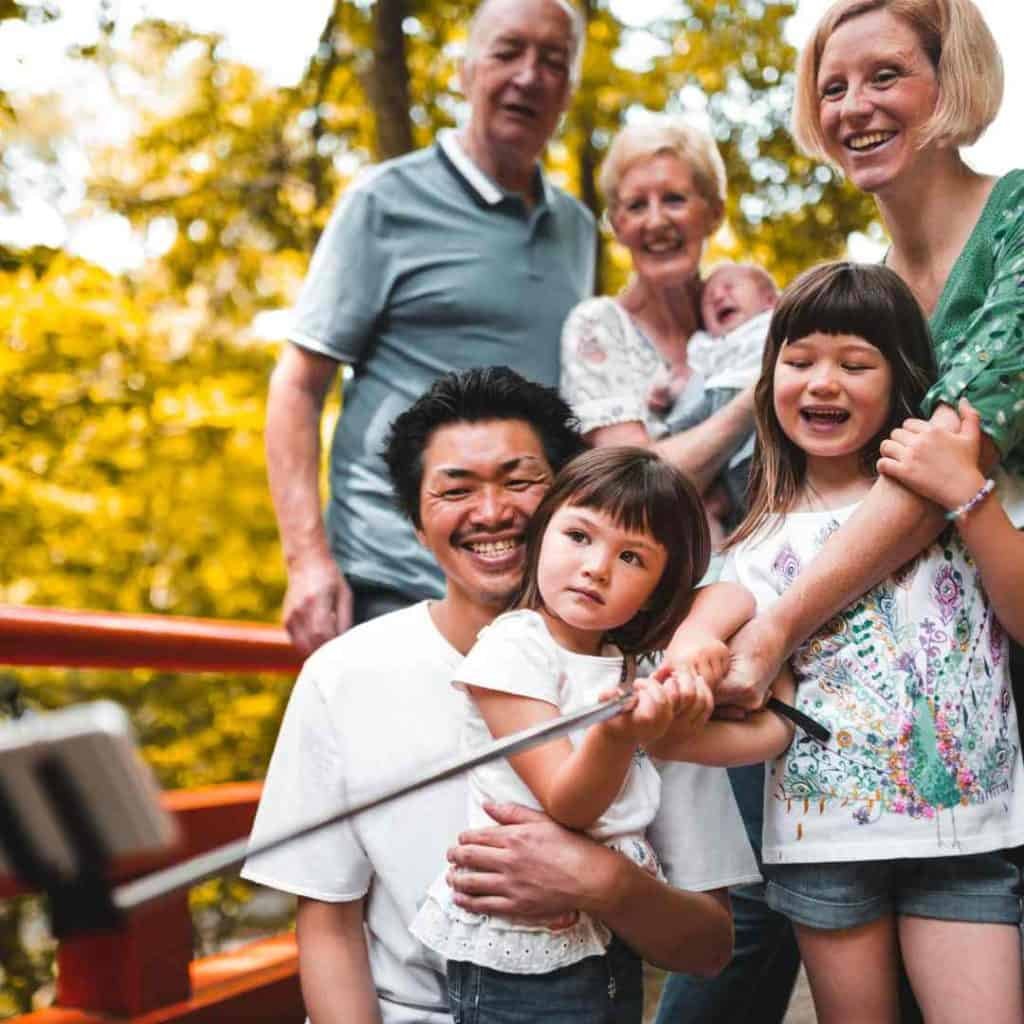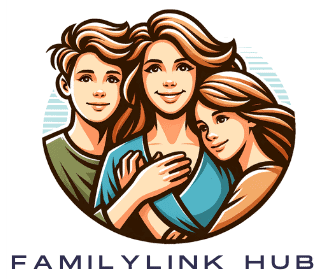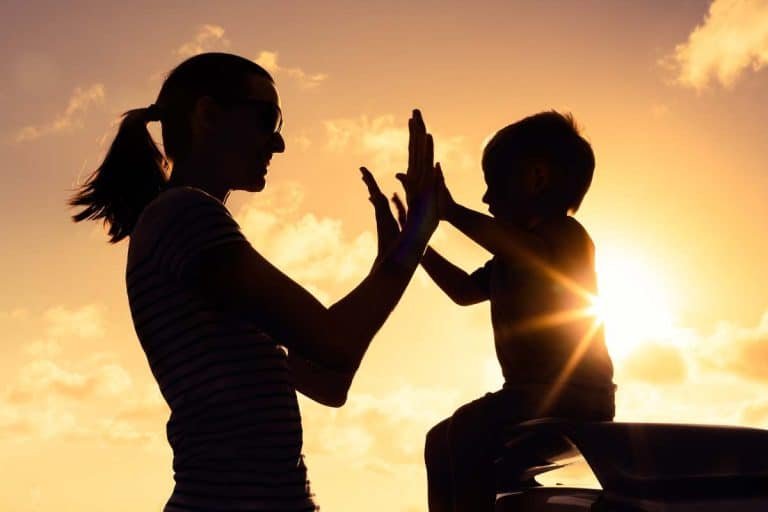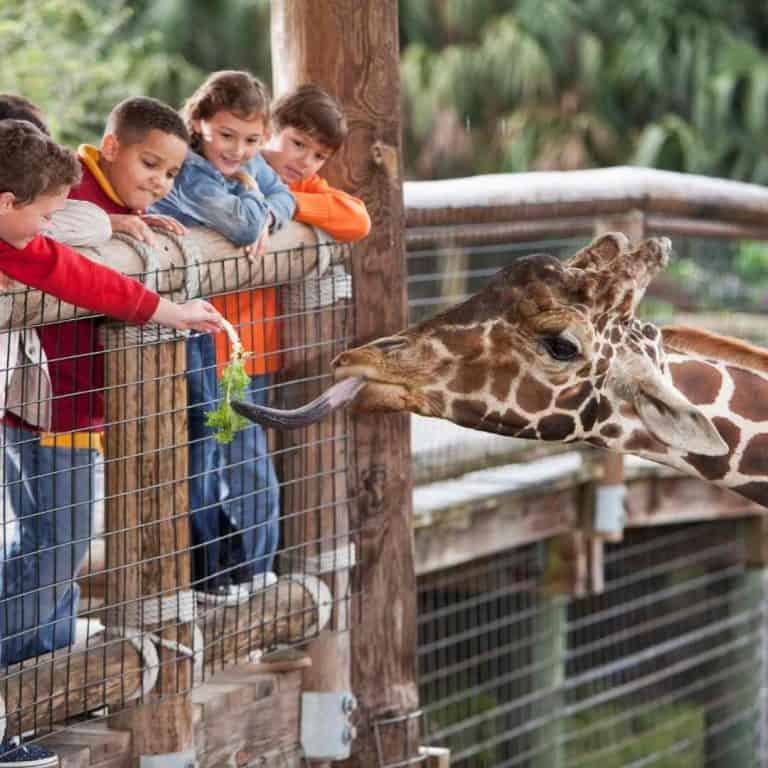The Importance Of Family Traditions And How To Start Your Own
Family traditions are more than simple rituals passed down through generations. They’re the bonds that hold us together, offering a comforting sense of identity and belonging. In today’s busy world, traditions serve as anchors, giving families a sense of stability while creating treasured memories.
Whether it’s a yearly holiday gathering or a simple Sunday dinner, these moments strengthen family ties and teach values to younger generations. Now more than ever, it’s easy to start new traditions and add to the tapestry of shared experiences that make family life so meaningful.

Table of Contents
Before we dive into creating lasting family memories, I want to be transparent with you! This post contains affiliate links, which means I may receive a small commission (at no extra cost to you) if you purchase through the links provided.
I only recommend products and resources that will help your family create meaningful traditions. Thank you for supporting this blog! Now, let’s explore how to create those precious family memories…
Why Family Traditions Matter
Family traditions are not just nostalgic customs; they’re a core part of a family’s past, present, and future. They provide consistency in times of change, reminding us of what truly matters. Exploring the many benefits of family traditions plays a vital role in connecting us and enriching our lives.
Strengthening Family Bonds
Traditions are the heartbeat of family unity. They give families an excellent way to connect, fostering a sense of belonging and shared identity. Whether you gather for a holiday meal or hold a weekly game night, these moments create cherished memories that strengthen family bonds.
Traditions also uphold family values, passing wisdom from one generation to another. WebMD notes that these rituals are an essential part of our social structure, contributing significantly to identity and trust within the family.
Emotional Benefits for Every Family Member
Traditions provide comfort and stability in the busy flow of daily life. They give children a sense of predictability, which helps them thrive. These traditions create a secure environment and support emotional well-being, providing children with a dependable framework.
Research highlighted by the American Psychological Association shows that family rituals are linked to better personal identity and improved health and academic outcomes for children, contributing to their emotional growth.

Connecting Through Culture and History
Family traditions help keep cultural heritage and family history alive, creating a bridge between generations through shared stories and customs. Engaging in these rituals allows families to celebrate where they come from, preserving the unique backgrounds that make up their story.
These traditions connect family members year after year, creating a continuous narrative that binds past and present. By passing down stories, families don’t just keep history alive—they actively participate in it.
Family traditions enrich our lives in countless ways, creating a legacy that endures. They’re like joyful stitches in the quilt of family life, each one adding to the vibrant pattern that defines who we are.
Steps to Start Your Family Traditions
Creating new family traditions is more than starting something new; it’s about weaving a meaningful legacy that reflects your family’s unique identity. Here’s how you can begin crafting those special moments.
Identify Core Values and Interests
Traditions that reflect your family’s core values have a lasting impact. Consider what matters most to your family—togetherness, adventure, or giving back.
Aligning traditions with these values will create a deeply resonant practice. For example, if generosity is essential, you might start a tradition of volunteering together each holiday season.
This approach turns traditions into meaningful expressions of what your family stands for. If you’d like more ideas, NPR has great insights into creating values-based traditions.
Involve the Whole Family
Traditions should feel like a shared effort. Involving everyone in the planning process sparks creativity and builds commitment. Gather your family and brainstorm ideas, allowing everyone to share thoughts and preferences.
This teamwork ensures that traditions are inclusive and meaningful to everyone. It could be as simple as deciding on a weekly game night or planning an annual camping trip. When everyone is involved, traditions become shared celebrations, not obligations.

Start Simple and Be Consistent
It’s easy to get carried away with elaborate plans, but simplicity is key. Begin with small, manageable activities that easily fit into your family’s routine. Consistency over time is what turns these activities into traditions.
Whether it’s a Friday night meal or a monthly movie night, choose something everyone can look forward to and rely on. The goal is to create lasting memories, not to impress—so start small and stay consistent.
Be Flexible and Open to Change
As your family grows and changes, traditions may need to evolve. Being open to adjustments keeps traditions joyful and avoids any unnecessary stress. Regularly review and adapt your traditions to fit your family’s needs.
Maybe your children have grown and prefer different activities or new family members bring new interests. Embrace these changes and adjust your traditions accordingly. Flexibility is essential to keep traditions alive and enjoyable.
Creating family traditions is a journey that captures the spirit of your family. By starting with shared values, collaborating with everyone, keeping things simple, and adapting as needed, you’ll create treasured traditions for generations.
Embracing Diversity in Family Traditions
Every family’s story is unique and shaped by different backgrounds, cultures, and experiences. Embracing this diversity enriches family traditions, making them meaningful for everyone involved.
Celebrating Family Structures and Unique Traditions
Families come in many forms, and each one has the opportunity to create beautiful, lasting traditions. Here’s how different family structures can shape these special moments:
- Blended Families: Honor traditions from original families while creating new ones together. This could include flexible holiday schedules or annual family reunions where everyone shares a special memory. For valuable insights and practical advice on parenting in blended families, I highly recommend visiting Foster Mom Strong. It’s a fantastic resource for navigating the unique challenges and joys of blended family dynamics with empathy and strength.
- Single-Parent Families: Build traditions focusing on one-on-one time, like Sunday brunches or Saturday movie nights, creating cherished routines that strengthen bonds.
- LGBTQ+ Families: Establish traditions that celebrate your family’s unique journey, such as incorporating annual Pride celebrations or honoring chosen family members in your rituals.
- Adoptive and Foster Families: Maintain connections to children’s birth cultures through unique traditions, like sharing traditional foods, and commemorate milestones unique to your family’s story.

Honoring Cultural Heritage and Celebrations
Family traditions are a fantastic way for multicultural families to celebrate diverse backgrounds and honor heritage. Here are some ways to integrate multiple cultural practices:
- Blending Cultures in Food: Incorporate dishes from different cultural backgrounds into regular family meals. For inspiration on blending food with family traditions, be sure to check out Mama Latina Tips. It’s a wonderful resource filled with delicious recipes and ideas for creating meaningful, culture-rich family traditions around the table.
- Celebrating Holidays Together: Blend cultural celebrations to create unique family holidays that reflect everyone’s background. For helpful tips and inspiration on family travel, visit See Mama Travel. It’s packed with family-friendly travel ideas, budgeting tips, and guides to make planning your next family adventure both easy and memorable.
- Storytelling Nights: Regularly share family histories and cultural stories, building a connection between generations.
Celebrating diverse family structures and backgrounds enriches traditions and makes them more inclusive, creating an environment where everyone feels valued.

Building Inclusive Traditions
Creating inclusive and adaptable traditions helps ensure that all family members feel connected. Here’s how:
- Open Communication: Hold regular family meetings to discuss everyone’s ideas and preferences.
- Flexibility: Provide multiple ways to participate in traditions, adjusting dates or roles as needed.
- Documenting Memories: Capture traditions through photos, journals, or videos, creating keepsakes that honor each family member’s role.
Creating new traditions is a continuous journey that should adapt as your family grows. The goal is to foster connection, celebrate uniqueness, and welcome everyone.

Stories of Family Traditions: Four Perspectives
These real-life stories show how families from diverse backgrounds have created meaningful traditions:
- The Two-Home Holiday Tradition: Sarah and Mike, divorced parents, celebrate “Christmas and a Half” by alternating homes for two special holiday days. Their children love “Double Christmas Magic,” making the holidays special.
- Chosen Family’s Sunday Ritual: Marcus and David started “Rainbow Waffle Sunday,” a weekly gathering of friends and loved ones, each person bringing a unique topping to symbolize their story.
- Heritage Kitchen Thursdays: The Patels, a multicultural foster family, celebrate each Thursday by cooking dishes from the children’s cultural backgrounds, creating a meaningful weekly tradition.
- Single-Parent Adventure Time: Lisa and her daughter Mia created “Third Sunday Adventures,” a monthly outing that evolves with Mia’s age and strengthens their bond.
These stories illustrate how family traditions can evolve while remaining true to the heart of each family’s values.
FAQs About Family Traditions
Family traditions provide a way to create joyful memories while bonding across generations. Here’s a look at some common questions about family traditions:
- What are examples of family traditions? Weekly movie nights, annual family vacations, holiday baking, and birthday rituals are all famous examples that help families connect.
- How can I make my family traditions more meaningful? Choose activities that reflect your family’s values and involve everyone in the planning. Regularly adjusting traditions ensures they stay relevant and enjoyable.
- Can family traditions change over time? Absolutely! Traditions should evolve as families grow, adapting to new dynamics to keep them meaningful.
- What if family members aren’t interested? Open communication and flexibility can help. Listen to everyone’s preferences and be open to new ideas that may capture more interest.
- How can I help my kids value these traditions as they grow? Lead by example, involve them in planning, and share the stories behind each tradition. These steps help children appreciate the meaning behind family rituals.
Family traditions are more than activities—they’re the threads that weave love and trust into the fabric of family life. Starting your traditions creates a legacy of shared experiences and lasting bonds.
Start Crafting Your Family’s Unique Rituals
Family traditions offer a beautiful way to strengthen bonds and create memories that will last generations. By establishing your own, you’ll be giving future generations the precious gift of connection and shared history.
There’s no better time to start, so gather your family, pick a tradition that feels right, and begin crafting your unique rituals today. Share your ideas in the comments below to inspire others on this journey of creating meaningful family traditions.
If you’re looking to deepen your family’s connections and add even more enriching activities to your routines, be sure to check out some of my other posts. “The Ultimate Guide to Journaling for Families“ offers practical tips on how journaling can become a shared family tradition that supports reflection, communication, and personal growth. “4 Positive Parenting Skills Every Parent Should Master for a Happier Home“ is a must-read for anyone looking to create a positive, nurturing environment for their family.
And if you’re looking for more ideas to make weekends memorable, “16 Fun Family Bonding Activities for the Weekend“ provides various engaging activities for all ages. Each post has ideas and insights to help you bring your family closer together.








Noodlemagazine I really like reading through a post that can make men and women think. Also, thank you for allowing me to comment!